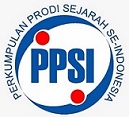From Seblang to Gandrung: The Uniqueness of Banyuwangi Culture as a Tourism Attraction
DOI:
https://doi.org/10.63440/singosari.v2i1.62Keywords:
Gandrung Dance, Seblang Dance, Banyuwangi Culture, Tourism Attraction, Cultural TourismAbstract
This article examines the uniqueness of Banyuwangi culture through the transformation and relationship between Gandrung Dance and Seblang Dance as the main tourist attraction in the region. The research uses a qualitative method with a literature review approach to explore the dynamics, meaning, and function of the two dances in the context of cultural tourism. The results of the study show that Seblang Dance, which is sacred and ritual in nature, became the forerunner of Gandrung Dance which now develops as an entertainment dance and more open social media and becomes an icon of Banyuwangi tourism. This transformation reflects the adaptation of local culture to social change and tourism needs. Apart from being a tourist attraction, these two dances also play an important role in preserving traditional values and strengthening the identity of the Using community. However, the process of commercialization and packaging Gandrung as a tourist product also brings its own challenges, especially in maintaining the sacredness and original meaning of the two arts. This article concludes that the preservation and development of Gandrung Dance and Seblang Dance are very important for the sustainability of local culture and the strengthening of sustainable cultural tourism in Banyuwangi.
References
Anoegrajekti, N. (2003). Seblang Using: Studi tentang Ritus dan Identitas Komunitas Using. Bahasa Dan Seni, 31(2), 253–269.
Clairine, A., Wiyono, E. N., & Lestari, E. (2024). Transformasi Makna Tari Gandrung; Studi Sosiologi Budaya melalui Perspektif Orientalisme Edward Said. Moderasi: Jurnal Studi Ilmu Pengetahuan Sosial, 5(1), 55–70. https://doi.org/10.24239/moderasi.vol5.iss1.247
Ferwirani Putri Ananda. (2023). Kajian Nilai Budaya Dalam Ritual Adat Seblang Olehsari Di Kecamatan Glagah Kabupaten Banyuwangi.
Mursidi, A. (2018). Ganrung seni pertunjukan Banyuwangi. Jurnal Santhet, 2(1), 10–17. http://ejournal.unibabwi.ac.id/index.php/santhet/article/view/331/212
Riswari, A. A. (2024). STRUKTURALISME DALAM GANDRUNG BANYUWANGI : PAKAIAN DAN GERAKAN. Sosiologi: Jurnal Ilmiah Kajian Ilmu Sosial Dan Budaya, 26(1), 46–59. http://jurnalsosiologi.fisip.unila.ac.id/index.php/jurnal
Rosa, A. A., Ruja, I. N., & Idris, I. (2020). Tari Seblang; Sebuah Kajian Simbolik Tradisi Ritual Desa Olehsari Sebagai Kearifan Lokal Suku Osing Banyuwangi. SANDHYAKALA Jurnal Pendidikan Sejarah, Sosial Dan Budaya, 1(2), 9–25. https://doi.org/10.31537/sandhyakala.v1i2.336
Sari, N. M. (2017). Fungsi Kesenian Tari Seblang bagi Masyarakat Desa Olehsari dan Kelurahan Bakungan di Banyuwangi Jawa Timur. 1–12. https://repository.unair.ac.id/70126/%0Ahttps://repository.unair.ac.id/70126/3/JURNAL_FIS.ANT.21 18 Sar f.pdf
Siti Ulfiyani, H. M. (2023). “Nilai-Nilai Konseling Pada Tradisi Tari Seblang Suku Osing Banyuwangi". Komunikasi Dan Konseling Islam, Vol. 5 No.(2), 1. https://journal.ibrahimy.ac.id/index.php/maddah/article/view/3474
Suharti, M. (2012). Gandrung Dance as Banyuwangi ’ s Favorite Tourism Object. HARMONIA - Jurnal Pengetahuan Dan Pemikiran Seni, 12(1).
Vindriana, N. D., Roosmargo, G., Lastoro, L., Nugraha, W., & Richardus, C. (2023). ‘ Festival ’ Seblang Olehsari Banyuwangi 2018-2022. Kajian Seni, 10(01), 94–115.
Yashi, A. P. (2018). Ritual Seblang Masyarakat Using Di Kecamatan Glagah, Kabupaten Banyuwangi Jawa, Timur. Haluan Sastra Budaya, 2(1), 1–18. https://doi.org/10.20961/hsb.v2i1.11790
Yudiana, I. K., & Istiqomah, F. (2021). Dinamika Tari Gandrung Sebagai Upaya Pelestarian Kesenian Di Era Milenial. Jurnal Sangkala, 1(1), 1–23.
Downloads
Published
Issue
Section
License
Copyright (c) 2025 Dayu Dwi Hardyawanti , Raisha Anindhita Putri, Amelia Fatimah Azzahra, Lidia Dwi Safitri (Author)

This work is licensed under a Creative Commons Attribution-ShareAlike 4.0 International License.








